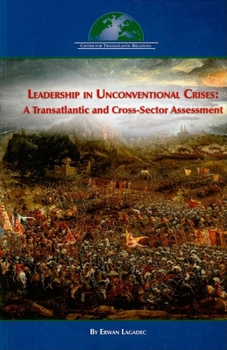Leadership in Unconventional Crises: A Transatlantic and Cross-Sector Assessment
We have entered the age of the unconventional crisis. In 2009 the worldwide economic recession and the A(H1N1) pandemic became the latest in a daunting series of events--9/11, the anthrax crisis, the SARS outbreak, the 2003 heat wave in Europe, the 2004 tsunami, Hurricane Katrina--that required responses beyond the standard call for more assets, planning, technical knowledge, and media training.
Standard responses to unconventional crises have yielded repeated failures of leadership and imagination. This book argues that to deal effectively with complex disasters, leaders and crisis managers must be educated to think on their feet in chaotic environments; to wage a war of movement against unconventional threats. We need strategic rethinking of the meaning of leadership and resilience, in addition to mapping out new allocations of roles and responsibilities across organizations, sectors, and countries.
To tackle these issues, the Center for Transatlantic Relations launched the project Unconventional Crises, Unconventional Responses: Reforming Leadership in the Age of Catastrophic Crises and Hypercomplexity. This book describes strategic concepts and organizational tools that have been successful in confronting catastrophic and hypercomplex events.





